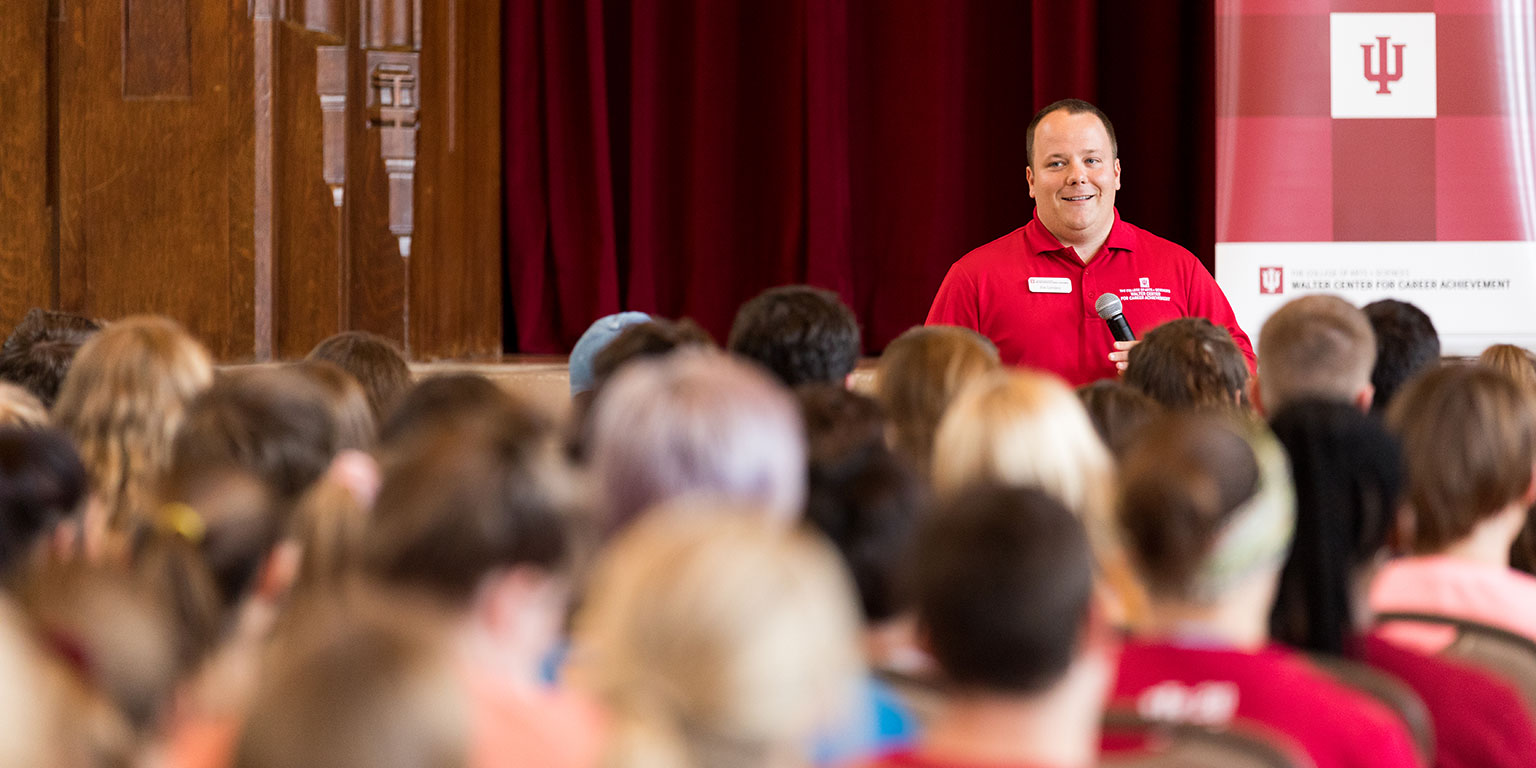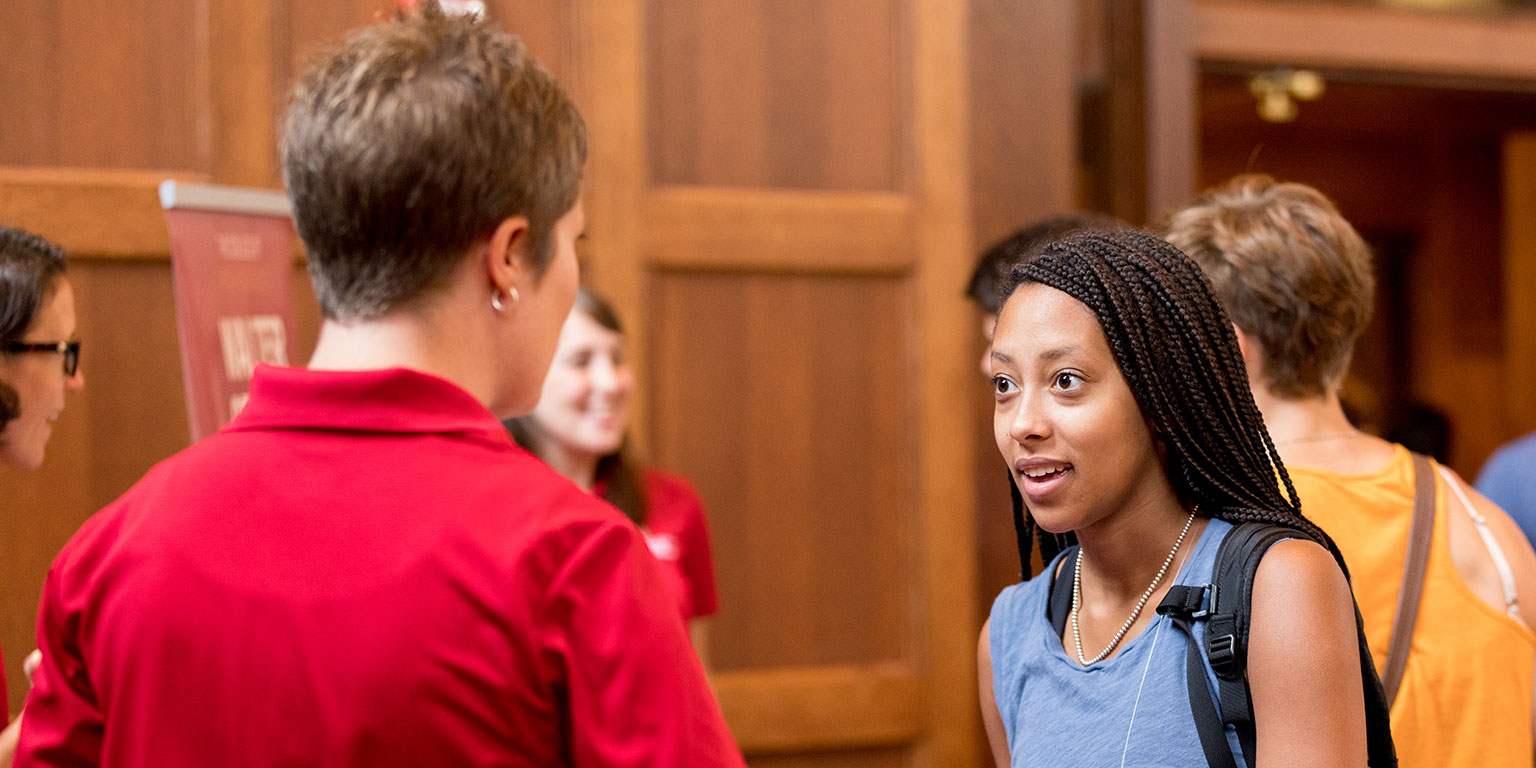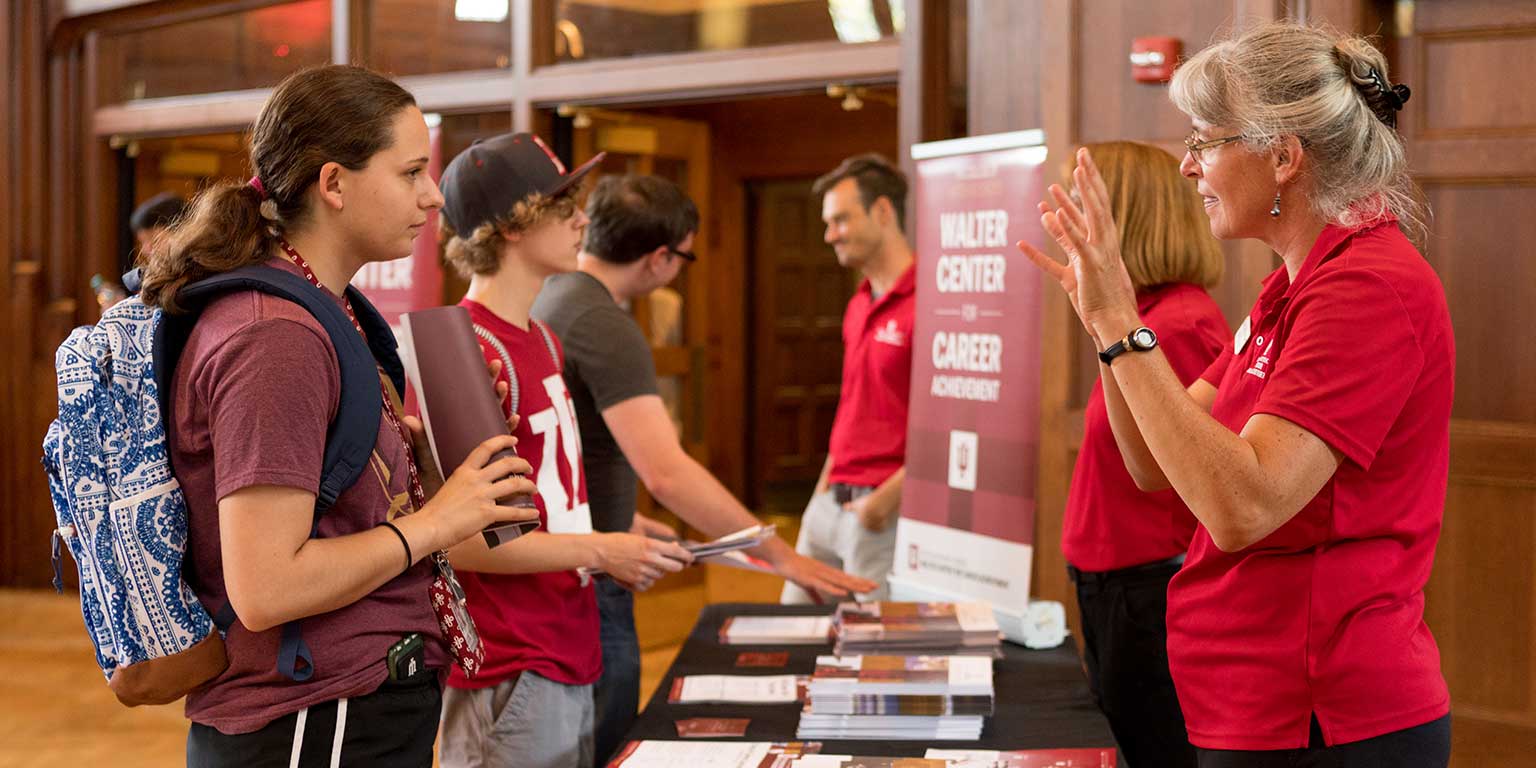By Bruce Lilly | Fall 2017
Photography by Maximillian Tortoriello
Navigating the passage from an undergraduate degree to a satisfying job can be daunting, and the traditional college campus approach to career development has often fallen short of students’ expectations. That’s why the College of Arts and Sciences has radically transformed its career services — a transformation that included the creation of a brand new organization within the College.
“This is something I came here wanting to do,” says Executive Dean Larry Singell, a labor economist by training who has studied the economics of higher education.
Singell gave the staff a challenge. “We needed to do something and we couldn’t do it the same way that professional schools do it,” he says.
And the College delivered. In 2016, it introduced the Walter Center for Career Achievement, a center that offers a complete re-envisioning of career development for students of the arts and sciences.
“We threw the old model of career services out the window,” says Joe Lovejoy, the center’s director.
The Walter Center is part of the Office of Student and Career Success, which includes undergraduate recruiting and academic advising in addition to career services.
“The luxury of building something from the ground up is that we’ve been very intentional every step of the way,” says Scott Feickert, the office’s executive director.
The decision to make sweeping changes was not made frivolously. It resulted from an extensive six-month-long information gathering process that began with the 2015 fall semester. Input was collected from students, faculty, administration, alumni, and employers.
“It became clear early on in our process that students in the College wanted more than the traditional career services that had been offered previously,” Lovejoy says.
Typically, traditional services include help with résumés and cover letters, mock interviews, and opportunities to interview for jobs with employers. All of these are still available, but students let it be known that they needed more than that.
For one thing, many students shared that they were not ready to meet with potential employers. First, they needed more help sorting through their career options, and they needed assistance with the work of translating their academic interests into career pursuits.





